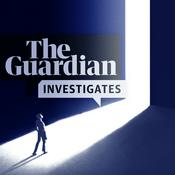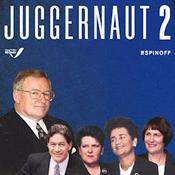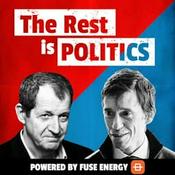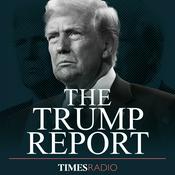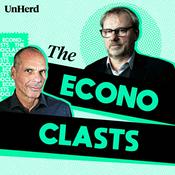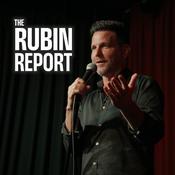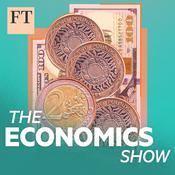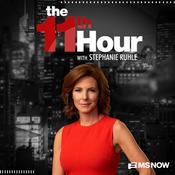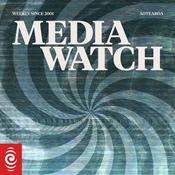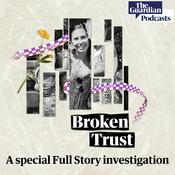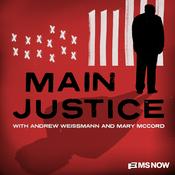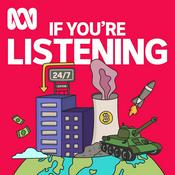389 episodes

The low pay puzzle
25/3/2024 | 29 mins.
From April, 2.7 million workers will get one of the biggest pay rises in UK history as the National Living Wage rises to £11.44 an hour. But will they feel better off?It's 25 years since the National Minimum Wage was introduced. During that time it's credited with putting billions of extra pounds in the pockets of low-paid workers. But, despite that, according to the Joseph Rowntree Foundation, two thirds of households living in poverty have at least one adult in work. And, according to the Institute for Fiscal studies, far from cutting the annual benefits bill, the cost of benefits paid to working families has ballooned since 1999 to about 50 billion pounds a year. So what's behind this low pay puzzle? And what can employers, governments and workers do to ensure that work pays? Pauline Mason investigates.Presenter: Pauline Mason Producer: Ravi Naik Editor: Clare Fordham.Contributors: Kate Bell, TUC Assistant General Secretary and former low pay commissioner Damian Grimshaw, Professor of Employment Studies, Kings College London and London & South Forum Co-Lead at the Productivity Institute Patricia Findlay, Distinguished Professor of Work and Employment Relations, University of Strathclyde, and Director of the Scottish Centre for Employment Research Matthew Fell, Low Pay Commissioner and Director of Competitiveness at BusinessLDN Nye Cominetti, Principal Economist, the Resolution Foundation James Cockett, Labour Market Economist, CIPD Margaret Esapa, Managing Director and owner, Cherry Care Services, Oxfordshire Conor Taylor, Director, Foresso

How real is the existential threat from AI?
18/3/2024 | 29 mins.
The existential threat caused by Artificial Intelligence is a popular theme in science fiction. But more recently it’s started to be taken seriously by governments around the world and the companies developing the technology. Where did this idea come from, and why is so much money being spent on it, rather than on the regulation of AI and the real threat it poses to jobs and to copyright?Presenter: Jack Stilgoe Producer: Philip Reevell Editor: Clare Fordham

What would Isambard Kingdom Brunel have done?
11/3/2024 | 28 mins.
It's 2024, and the Manchester extension of HS2 has been cancelled. The leg to Leeds was cancelled in 2021. The remaining line to Birmingham is now less than half the initial planned route, and will cost over double the initial budget. This is not exclusive to HS2; Sprialling costs and missed deadlines have become commonplace in big engineering projects, the UK is now one of the most expensive places in the world to build infrastructure, but Britain has a proud history of engineering, and one name in particular looms large - Isambard Kingdom Brunel. Ruthless, bloody minded and notoriously driven - what could he do about the current state of UK infrastructure?Presenter: Neil Maggs Producer: Johnny I'Anson Editor: Clare Fordham

Power Drive
04/3/2024 | 28 mins.
It's widely believed that the Conservaives won the Uxbridge by-election because of motorists who were annoyed by the London mayor's ultra low emission zone. With a general election looming, both main english parties want to harness "driver power". But how did the vote of car and van owners become so important? Does the independence driving brings lead to a libertarian attitude? Or is that combative attitude caused by drivers feeling that they have been used as cash-cows by successive governments, which have gladly taken their road tax and fuel duty. But that power balance is also set to change, with the eventual electrification of all UK vehicles. Could road pricing replace fuel duty - and how will motorists respond?Presenter: Chris Bowlby Producer: Jim Frank Editor: Clare Fordham

How to cure the small town blues
26/2/2024 | 28 mins.
Middlesbrough, in the north-east, is one of the most deprived towns in England. Once a steel and shipbuilding powerhouse, its fortunes changed when those industries closed down. Today, the town that Gladstone described as “an infant Hercules” faces a precarious future. David Baker, who grew up in Middlesbrough in the 1970s, returns to his hometown to ask what can be done to revive its fortunes and what Middlesbrough can teach us about regenerating small, postindustrial towns elsewhere in the UK.Presenter: David Baker Producer: Dan Hardoon Editor: Clare FordhamContributors: Natasha Vall, Professor of Urban and Cultural History, Teesside University Rob Nichols, Editor, Middlesbrough FC fanzine Fly Me To The Moon Sally Rodgers, DJ, producer, and vocalist Steve Dugan, Head of Enterprise, Teesside University Oliver Lloyd, co-founder and COO, Dink Chris Cooke, Mayor of Middlesbrough Gary Hamilton, managing director, Community Leisure Management Lord Michael Heseltine, former Secretary of State for the Environment With thanks to the students of Teesside University and Reverend Kath Dean of the Genesis Project.
More News podcasts
Trending News podcasts
About Analysis
Listen to Analysis, The News Agents and many other podcasts from around the world with the radio.net app

Get the free radio.net app
- Stations and podcasts to bookmark
- Stream via Wi-Fi or Bluetooth
- Supports Carplay & Android Auto
- Many other app features
Get the free radio.net app
- Stations and podcasts to bookmark
- Stream via Wi-Fi or Bluetooth
- Supports Carplay & Android Auto
- Many other app features


Analysis
download the app,
start listening.


